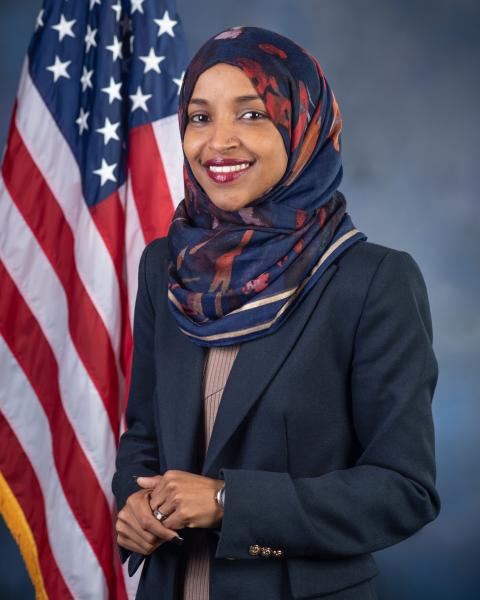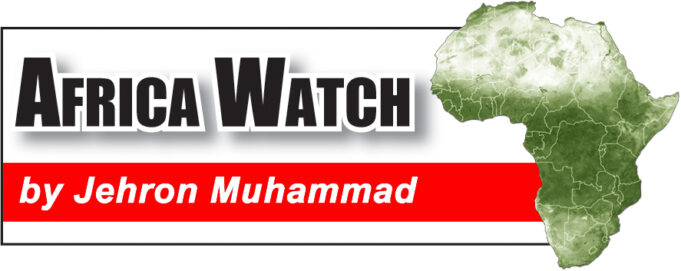Before her removal from the powerful House Foreign Affairs Committee, U.S. Rep. Ilhan Omar (D-Minn.) announced that she would launch an African Policy working group to hear from officials and experts who she works with and in Africa. Omar, as a member of the Foreign Affairs Committee, served as the vice chair of the Subcommittee on Africa.
She was removed from the subcommittee on Feb. 2 after a 218 to 211 vote that fell strictly along party lines, with one Republican member of the House voting “present.”

Rep. Omar was rejected for controversial tweets about Israel she made in 2019 and 2021 and her ouster fulfilled new House Speaker Kevin McCarthy’s (R-Calif) promise to remove her, in a tit-for-tat after the Democratic-controlled House removed two Republicans from committees in 2021.
Omar served her entire tenure in Congress on the Foreign Affairs Committee and in what appeared as a move to allay Republican fears and increase her support, she recently tweeted photos from her meeting concerning “counterterrorism and diplomacy,” with General Michael E. Langley. Gen. Langley is the sixth commander of U.S. Africa Command (Africom).
Congratulating him on being “the first Black four-star general in history” of the U.S. Marine Corps, she wrote, we “discussed the U.S. military’s role in Somalia, the need to prioritize development and diplomacy in Africa; counterterrorism policy on the continent; and Global Fragility Act implementation.” Rep. Omar was born in Somalia.
Why the congresswoman was discussing the implementation of the Fragility Act, which is designed to “revitalize democracy globally,” with the head of Africom is anyone’s guess. In a press statement issued from her office, concerning her proposed “U.S.-Africa Policy Working Group,” she said, “Far too long, the United States has treated Africa as a threat that needed to be contained, a series of fires that needed to be put out, or a junior partner that needed to be disciplined. Congress has historically paid scant attention to the continent except when extreme circumstances have prompted reactive responses.”
She continued, “The U.S.-Africa Policy Working Group will be a venue for the promotion of American values and American interests in our dealings with our African partners,” she wrote while explaining the ideals and goals of the yet-to-be-formed working group.
Africa has its own values and doesn’t need the implementation of “American values,” which have historically been used to justify—in many cases—illegitimate and debilitating methods of accessing African natural and mineral resources.
As the only African in the U.S. House of Representatives or Senate, Omar’s proposed working group is only legitimate if her policies champion primary issues like the mitigation or reduction of climate issues; the stopping of illicit financial flows from multinational corporations and Africa’s seemingly ever-increasing debt crises. Not to mention the need to mitigate the presence and influence of the U.S. military under the auspices of Africom.
In 2022 she wrote an opinion page in the London-based The Guardian titled, “We need a Marshall Plan for Africa.” “We in the U.S. have too often treated African countries not as political and economic partners, but as a security problem that needs to be addressed with military and policing solutions. This has led us to repeat the same mistakes we made in countries like Afghanistan and Iraq, with military leaders calling foreign policy shots instead of diplomats. A policy that leads with training human rights—violating militaries and police, unaccountable civilian casualties in airstrikes, and arms sales is doomed not just to fail but to backfire,” she wrote.
Omar explained that “African ambassadors and officials” told her they would “prefer to partner with the United States on things like infrastructure, development, and health.”
“But historically when the U.S. companies invested in Africa, it’s always been without infrastructure development, and always with strings attached, like the austerity programs implemented by the International Monetary Fund (IMF). Add to that the recent completion of the China-financed project of the Africa Center for Disease Control and Prevention headquarters based in Addis Ababa, Ethiopia, that the U.S. backed out of.
The correction in Congresswomen Omar’s opinion piece should be to do business with whoever serves Africa’s interest without strings being attached and without being exploited.”
Concerning the implementation of her Africa Working Group, Omar writes, “Our role must be as partners with the movements and civil society groups acting on the ground … .”
The Minnesota Democrat noted that Congress has paid little attention to issues in Africa and that this group will serve to research how to best deal with partners on the continent.
The statement goes on to say that the working group will be active in crises throughout Africa and will also focus on the continent’s success stories and hearing directly from Africans about their own perspectives. If this happens, it will remain to be seen.
Follow @JehronMuhammad on Twitter













